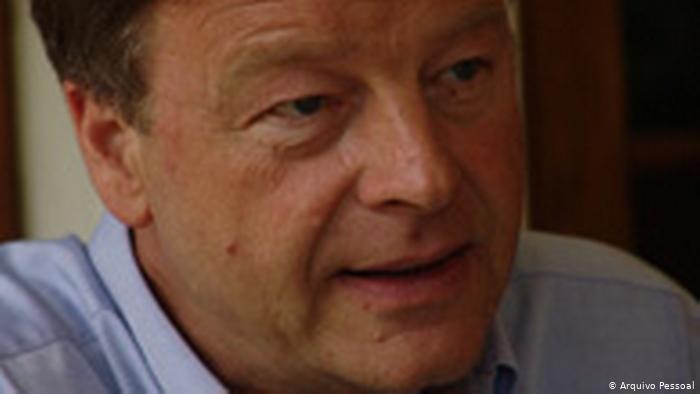Mozambique: Residents of Nametil forced to abandon their homes - AIM | Watch
Mozambique: British courts “wash their hands” of the hidden debts’ case – Thomashausen

FILE - Professor André Thomashausen, specialist in international law [File photo: DW]
An international law expert says that the British court acted “prudently” in referring the case of hidden debts to arbitration in Switzerland, as requested by Privinvest. Mozambique will now be at a disadvantage, he believes.
The England and Wales Court of Appeal has ruled that the case of hidden debts, which involves several foreign companies and which has cost the Mozambican state more than two billion euros, will not be ruled on by an English court.
The decision is the result of an appeal filed by Privinvest, in which the Lebanese firm sought to prove that, in contracts for the supply of coastal protection equipment and services to Mozambican companies, the parties agreed that the Swiss International Court of Arbitration would be the competent body to decide on any disputes.
Also read: British court upholds Privinvest appeal in case over $2 bln Mozambique debt scandal
For the expert in international law, the decision of the British court puts Mozambique at a disadvantage in its judicial war against Privinvest, since the arbitration courts do not privilege states when it comes to settling conflicts.
DW Africa: What reasons will have determined the English court’s decision?
André Thomashausen (AT): The court gave priority to what is in the contract. Courts usually do this, that is, enforce what the parties to an agreement have agreed to. The main agreement has a clause according to which disagreements and disputes must be resolved in accordance with the Swiss Arbitration Act. So the court considered that to be the will of the parties, and not another rule found in another contract, that referred to the jurisdiction of the British courts.
It is a prudent decision, because in this way the British courts wash their hands of this hot case, this hot potato. They also give due consideration to the fact that it was neither the British banks nor the British authorities that built this entire empire of debts, illicit payments and possible crimes. It was a large Swiss bank, Credit Suisse, which later found another bank in a consortium, but the main bank is the Swiss bank. The [responsibility] lies with the supervisory authority of banks in Switzerland and the Swiss government, which authorised the transfer of a huge €2 billion loan.
DW Africa: Can Mozambique still appeal against that decision?
AT: I didn’t see the trial, but I don’t think so, because it is already a second instance decision, so the appeal is exhausted. Usually, there is no second appeal [usually no appeal against an appeal decision] .
DW Africa: Since arbitration is not essentially a model favourable to the state, can it be said that Privinvest is at an advantage in its war with the Mozambican state in Switzerland?
AT: It is possible that it does. Privinvest’s defence was always that it was a business, a commercial transaction, based on a plan prepared by the Mozambican government, to install maritime and navy inspection capacities. Mozambique is a sovereign state, and at the time should have known well what it was doing. Mozambique must provide evidence to show why deliveries failed. There is a great danger there for Mozambique, because Privinvest itself must have instructions from the state as to what payments should be made and to whom, as well as on how these deliveries were directed.
Privinvest argues that it is not to blame, that it never embezzled anything and that it simply acted on the basis of the instructions it was receiving from the Mozambican side. This is where it will start to be very interesting, because when we have knowledge of these correspondences and these details, we will see that the main culprit for the disappearance of a large part of that money was really Mozambique and not the commercial agents.
Commercial agents do not normally act on their own; they act on the basis of the instructions they receive. They make their profit, but there is supervision. This attempt by Mozambique to put the blame on the businessmen has always been a bit risky.













Leave a Reply
Be the First to Comment!
You must be logged in to post a comment.
You must be logged in to post a comment.